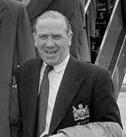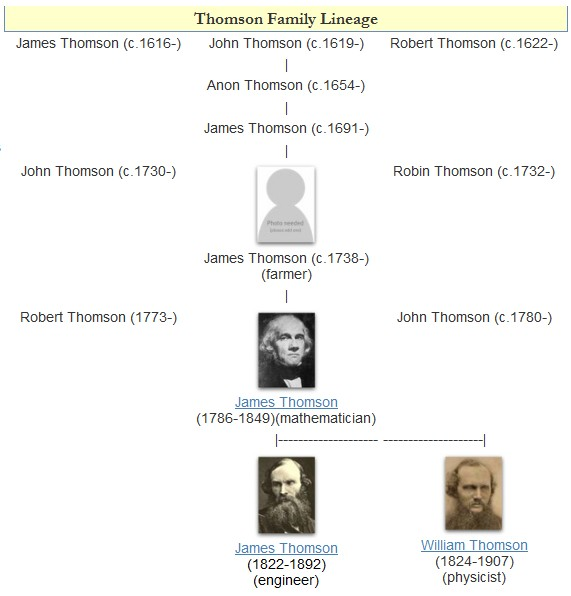|
Albert Alexander Gray
Albert Alexander Gray FRSE (8 October 1868 – 4 January 1936) was a British physician and otologist. Life He was born at Firbank, a large villa in Pollokshields in Glasgow, one of the nine children of William Gray, a biscuit manufacturer in his role as principal partner of Gray Dunn & Co (creators of the Blue Riband Biscuit), and his wife, Margaret Sarah Pace. He was educated at Bootham School (an independent Quaker boarding school) in Yorkshire and then Glasgow Academy. he then studied medicine at Glasgow University graduating MB in 1890. He immediately began to specialise in diseases of the ear. He practiced at Glasgow Royal Infirmary and lectured at Glasgow University. He received his doctorate (MD) in 1897. In 1898 he was elected a Fellow of the Royal Society of Edinburgh. his proposers were John Gray McKendrick, Magnus Maclean, William Jack and Sir William Thomson (Lord Kelvin). His later life was spent working at the Ferens Institute of Oto-Laryngology (1927 until ... [...More Info...] [...Related Items...] OR: [Wikipedia] [Google] [Baidu] |
FRSE
Fellowship of the Royal Society of Edinburgh (FRSE) is an award granted to individuals that the Royal Society of Edinburgh, Scotland's national academy of science and letters, judged to be "eminently distinguished in their subject". This society received a royal charter in 1783, allowing for its expansion. Elections Around 50 new fellows are elected each year in March. there are around 1,650 Fellows, including 71 Honorary Fellows and 76 Corresponding Fellows. Fellows are entitled to use the post-nominal letters FRSE, Honorary Fellows HonFRSE, and Corresponding Fellows CorrFRSE. Disciplines The Fellowship is split into four broad sectors, covering the full range of physical and life sciences, arts, humanities, social sciences, education, professions, industry, business and public life. A: Life Sciences * A1: Biomedical and Cognitive Sciences * A2: Clinical Sciences * A3: Organismal and Environmental Biology * A4: Cell and Molecular Biology B: Physical, Engineering an ... [...More Info...] [...Related Items...] OR: [Wikipedia] [Google] [Baidu] |
Woodville Gray
Woodville Gray (10 June 1866 – 28 February 1938) was a Scottish footballer who played as a forward. Career A member of a large and successful Quaker family who manufactured biscuits (''Gray Dunn & Co''), Gray played club football for Glasgow Academy, Pollokshields Athletic and Queen's Park (his handful of appearances as a 'guest player' including a Glasgow Merchants Charity Cup victory and an appearance on the losing side in the 1885 FA Cup Final). He made one appearance for Scotland Scotland (, ) is a country that is part of the United Kingdom. Covering the northern third of the island of Great Britain, mainland Scotland has a border with England to the southeast and is otherwise surrounded by the Atlantic Ocean to the ... in 1886; London Hearts Supporters Club he had ... [...More Info...] [...Related Items...] OR: [Wikipedia] [Google] [Baidu] |
Fellows Of The Royal Society Of Edinburgh
The Royal Society of Edinburgh is Scotland's national academy of science and letters. It is a registered charity that operates on a wholly independent and non-partisan basis and provides public benefit throughout Scotland. It was established in 1783. , there are around 1,800 Fellows. The Society covers a broader selection of fields than the Royal Society of London, including literature and history. Fellowship includes people from a wide range of disciplines – science & technology, arts, humanities, medicine, social science, business, and public service. History At the start of the 18th century, Edinburgh's intellectual climate fostered many clubs and societies (see Scottish Enlightenment). Though there were several that treated the arts, sciences and medicine, the most prestigious was the Society for the Improvement of Medical Knowledge, commonly referred to as the Medical Society of Edinburgh, co-founded by the mathematician Colin Maclaurin in 1731. Maclaurin was unhap ... [...More Info...] [...Related Items...] OR: [Wikipedia] [Google] [Baidu] |
Academics Of The University Of Glasgow
An academy ( Attic Greek: Ἀκαδήμεια; Koine Greek Ἀκαδημία) is an institution of secondary or tertiary higher learning (and generally also research or honorary membership). The name traces back to Plato's school of philosophy, founded approximately 385 BC at Akademia, a sanctuary of Athena, the goddess of wisdom and skill, north of Athens, Greece. Etymology The word comes from the ''Academy'' in ancient Greece, which derives from the Athenian hero, ''Akademos''. Outside the city walls of Athens, the gymnasium was made famous by Plato as a center of learning. The sacred space, dedicated to the goddess of wisdom, Athena, had formerly been an olive grove, hence the expression "the groves of Academe". In these gardens, the philosopher Plato conversed with followers. Plato developed his sessions into a method of teaching philosophy and in 387 BC, established what is known today as the Old Academy. By extension, ''academia'' has come to mean the accumulation, ... [...More Info...] [...Related Items...] OR: [Wikipedia] [Google] [Baidu] |
Alumni Of The University Of Glasgow
Alumni (singular: alumnus (masculine) or alumna (feminine)) are former students of a school, college, or university who have either attended or graduated in some fashion from the institution. The feminine plural alumnae is sometimes used for groups of women. The word is Latin and means "one who is being (or has been) nourished". The term is not synonymous with "graduate"; one can be an alumnus without graduating ( Burt Reynolds, alumnus but not graduate of Florida State, is an example). The term is sometimes used to refer to a former employee or member of an organization, contributor, or inmate. Etymology The Latin noun ''alumnus'' means "foster son" or "pupil". It is derived from PIE ''*h₂el-'' (grow, nourish), and it is a variant of the Latin verb ''alere'' "to nourish".Merriam-Webster: alumnus .. Separate, but from th ... [...More Info...] [...Related Items...] OR: [Wikipedia] [Google] [Baidu] |
Medical Doctors From Glasgow
Medicine is the science and Praxis (process), practice of caring for a patient, managing the diagnosis, prognosis, Preventive medicine, prevention, therapy, treatment, Palliative care, palliation of their injury or disease, and Health promotion, promoting their health. Medicine encompasses a variety of health care practices evolved to maintain and restore health by the prevention (medical), prevention and therapy, treatment of illness. Contemporary medicine applies biomedical sciences, biomedical research, medical genetics, genetics, and medical technology to diagnosis (medical), diagnose, treat, and prevent injury and disease, typically through pharmaceuticals or surgery, but also through therapies as diverse as psychotherapy, splint (medicine), external splints and traction, medical devices, biologic medical product, biologics, and Radiation (medicine), ionizing radiation, amongst others. Medicine has been practiced since Prehistoric medicine, prehistoric times, and for most o ... [...More Info...] [...Related Items...] OR: [Wikipedia] [Google] [Baidu] |
1936 Deaths
Events January–February * January 20 – George V of the United Kingdom and the British Dominions and Emperor of India, dies at his Sandringham Estate. The Prince of Wales succeeds to the throne of the United Kingdom as King Edward VIII. * January 28 – Britain's King George V state funeral takes place in London and Windsor. He is buried at St George's Chapel, Windsor Castle * February 4 – Radium E (bismuth-210) becomes the first radioactive element to be made synthetically. * February 6 – The IV Olympic Winter Games open in Garmisch-Partenkirchen, Germany. * February 10– 19 – Second Italo-Ethiopian War: Battle of Amba Aradam – Italian forces gain a decisive tactical victory, effectively neutralizing the army of the Ethiopian Empire. * February 16 – 1936 Spanish general election: The left-wing Popular Front coalition takes a majority. * February 26 – February 26 Incident (二・二六事件, ''Niniroku Jiken''): The Impe ... [...More Info...] [...Related Items...] OR: [Wikipedia] [Google] [Baidu] |
1868 Births
Events January–March * January 2 – British Expedition to Abyssinia: Robert Napier leads an expedition to free captive British officials and missionaries. * January 3 – The 15-year-old Mutsuhito, Emperor Meiji of Japan, declares the '' Meiji Restoration'', his own restoration to full power, under the influence of supporters from the Chōshū and Satsuma Domains, and against the supporters of the Tokugawa shogunate, triggering the Boshin War. * January 5 – Paraguayan War: Brazilian Army commander Luís Alves de Lima e Silva, Duke of Caxias enters Asunción, Paraguay's capital. Some days later he declares the war is over. Nevertheless, Francisco Solano López, Paraguay's president, prepares guerrillas to fight in the countryside. * January 7 – The Arkansas constitutional convention meets in Little Rock. * January 9 – Penal transportation from Britain to Australia ends, with arrival of the convict ship '' Hougoumont'' in Weste ... [...More Info...] [...Related Items...] OR: [Wikipedia] [Google] [Baidu] |
Labyrinth (inner Ear)
The bony labyrinth (also osseous labyrinth or otic capsule) is the rigid, bony outer wall of the inner ear in the temporal bone. It consists of three parts: the vestibule, semicircular canals, and cochlea. These are cavities hollowed out of the substance of the bone, and lined by periosteum. They contain a clear fluid, the perilymph, in which the membranous labyrinth is situated. A fracture classification system in which temporal bone fractures detected by computed tomography are delineated based on disruption of the otic capsule has been found to be predictive for complications of temporal bone trauma such as facial nerve injury, sensorineural deafness and cerebrospinal fluid otorrhea. On radiographic images, the otic capsule is the densest portion of the temporal bone. In otospongiosis, a leading cause of adult-onset hearing loss Hearing loss is a partial or total inability to hear. Hearing loss may be present at birth or acquired at any time afterwards. Hearing ... [...More Info...] [...Related Items...] OR: [Wikipedia] [Google] [Baidu] |
Scotland National Football Team
The Scotland national football team gd, Sgioba Ball-coise Nàiseanta na h-Alba sco, Scotland National Fitbaa Team represents Scotland in men's international football and is controlled by the Scottish Football Association. It competes in the three major professional tournaments: the FIFA World Cup, UEFA Nations League and the UEFA European Championship. Scotland, as a country of the United Kingdom, is not a member of the International Olympic Committee, and therefore the national team does not compete in the Olympic Games. The majority of Scotland's home matches are played at the national stadium, Hampden Park. Scotland is the joint oldest national football team in the world, alongside England, whom they played in the world's first international football match in 1872. Scotland has a long-standing rivalry with England, whom they played annually from 1872 until 1989. The teams have met only eight times since then, most recently in a group match during Euro 2020 in June 20 ... [...More Info...] [...Related Items...] OR: [Wikipedia] [Google] [Baidu] |
Sir William Thomson
William Thomson, 1st Baron Kelvin, (26 June 182417 December 1907) was a British mathematician, mathematical physicist and engineer born in Belfast. Professor of Natural Philosophy at the University of Glasgow for 53 years, he did important work in the mathematical analysis of electricity and formulation of the first and second laws of thermodynamics, and did much to unify the emerging discipline of physics in its contemporary form. He received the Royal Society's Copley Medal in 1883, was its president 1890–1895, and in 1892 was the first British scientist to be elevated to the House of Lords. Absolute temperatures are stated in units of kelvin in his honour. While the existence of a coldest possible temperature (absolute zero) was known prior to his work, Kelvin is known for determining its correct value as approximately −273.15 degrees Celsius or −459.67 degrees Fahrenheit. The Joule–Thomson effect is also named in his honour. He worked closely with mathematics ... [...More Info...] [...Related Items...] OR: [Wikipedia] [Google] [Baidu] |







